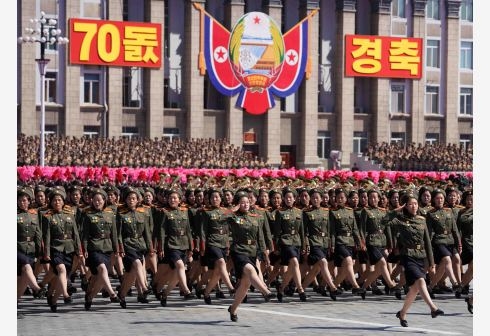


|
 Soldiers march during a parade to celebrate the 70th anniversary of the
founding of the DPRK in Pyongyang, DPRK, on September 9, 2018. (Photo:
Xinhua)
|
|
|
A sea of spectators watched the parade as tens of thousands
goose-stepping soldiers and columns of tanks drove past a review stand where
DPRK’s leader Kim Jong-un took the salute.
Unlike in previous years, there were no inter-continental
missiles on display. And there were no nuclear tests to mark the day, as has
happened in each of the last two years.
DPRK routinely uses major holidays to showcase its military
capabilities and the latest developments in missile technology.
But that has been dropped this year, underlining Kim's stated
aim for denuclearising the Korean peninsula and his recent meetings with the
Republic of Korea (RoK)’s President Moon Jae-in and summits with US President
Donald Trump and Chinese President Xi Jinping.
The theme for the celebrations this year was unifying the Korean
peninsula, divided since the 1950-53 Korean War. Floats on unification passed
by a throng of DPRK’s waving unified Korea flags.
"All Koreans should join forces to accomplish unification
in our generation. Unification is the only way Koreans can survive,"
said an editorial in DPRK's party newspaper Rodong Sinmun.
Kim and Moon will meet in Pyongyang on September 18-20 for the
third time this year and discuss "practical measures" towards
denuclearisation, officials in Seoul have said.
DPRK has invited a large group of foreign journalists to cover a
military parade and other events to mark the 70th anniversary of its
founding.
|
Source: NDO